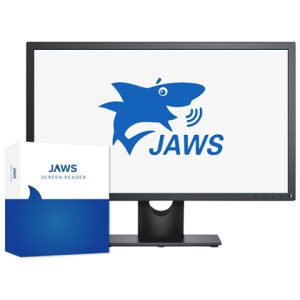As the scholarly community continues to recognize the importance of open data sharing for increasing the reproducibility of research, researchers are faced with a growing menu of options through which to make their data available. For example, is it better to deposit data in a digital repository, which often grants depositors a Digital Object Identifier (DOI), or to formally describe a dataset in a data journal article, or to share it through a metadata registry like the Pitt Data Catalog? A recent video call for papers from the journal Data in Brief argues that data journals offer a unique opportunity for standalone publication of genres that are often critically underserved by the scholarly publishing ecosystem: datasets containing replication data, negative results, and intermediate data for research in progress. Continue reading
CANCELED- “Lab Girl” Book Discussion for the NEA Big Read
HSLS is hosting a discussion of the book Lab Girl by Hope Jahren on Tuesday, March 24. This memoir explores Hope Jahren’s upbringing and training as a geobiologist, her experiences in the lab, her musings on nature and the environment, and the peaks and valleys of being a scientist.
Free copies of Lab Girl are available thanks to an NEA Big Read grant awarded to Duquesne University. NEA Big Read is a program of the National Endowment for the Arts in partnership with Arts Midwest.
Abigail Rothrauff, Department of Immunology, will lead the book discussion. Join us from 12:30-2 p.m. in Falk Library for conversation and pizza. Please bring your own drink.
Space is limited, so register soon to reserve your spot (and to have time to read the FREE BOOK)! Continue reading
JAWS® Screen Reader Now at Falk Library
Job Access With Speech , or JAWS®, is software that reads text on a computer screen to enable easier computer access for people who are blind or have low vision. Listening to JAWS® with headphones, you can use a mouse and keyboard to read a website, edit a document, and send an e-mail. One of the most popular screen reader programs, JAWS® features two multilingual synthesizers and can easily be paired with Braille keyboard input. With licensing support from Pitt Information Technology, JAWS® is now available on Falk Library computers running Windows OS, including classroom computers and laptops. Continue reading
, or JAWS®, is software that reads text on a computer screen to enable easier computer access for people who are blind or have low vision. Listening to JAWS® with headphones, you can use a mouse and keyboard to read a website, edit a document, and send an e-mail. One of the most popular screen reader programs, JAWS® features two multilingual synthesizers and can easily be paired with Braille keyboard input. With licensing support from Pitt Information Technology, JAWS® is now available on Falk Library computers running Windows OS, including classroom computers and laptops. Continue reading
Accessing Full Text at HSLS
Do you ever find yourself stuck when trying to access the full text of an article? One of the benefits of your University of Pittsburgh affiliation is the ability to access the full range of electronic resources that the library offers. A quick video, Locating Full Text Using HSLS Resources, was created to help you. This video walks you through the three ways to access full text at HSLS: using Links@Pitt, searching PITTCat, and using Document Delivery.
HSLS Staff News
The HSLS Staff News section includes recent HSLS presentations, publications, staff changes, staff promotions, degrees earned, etc.
Names in bold are HSLS-affiliated
Welcome
HSLS welcomes three new research and instruction librarians. Stephen Gabrielson previously worked as the pharmacy librarian at the M.B. Ketchum Memorial Library at Marshall B. Ketchum University in Fullerton, CA. He earned his MS in library and information science at Simmons University in Boston, MA, and a BA in art history from Humboldt State University in Arcata, CA, where he also earned a Certificate in Museum and Gallery Practices. Rachel Suppok was a graduate teaching assistant at the Waidner-Spahr Library at Dickinson College in Carlisle, PA. She received an MLIS from the University of Wisconsin-Milwaukee and a BS in neuroscience from Dickinson College in Carlisle, PA. She also studied at the Danish Institute for Study Abroad. Francesca Yates was the health sciences librarian at the Geisinger Commonwealth School of Medicine in Scranton, PA. She received an MLIS from Pitt and a BA in Spanish at the State University of New York at New Paltz, where she doubled minored in linguistics and psychology. Continue reading
Classes for March 2020
EndNote for Research Teams, Monday, March 2, 11 a.m.–12 p.m.
Basic EndNote for Macs, Tuesday, March 3, 10–11 a.m.
Painless PubMed, Tuesday, March 3, 1–2 p.m.
Gene Expression Visualization, Wednesday, March 4, 10 a.m.–3 p.m.
Basic EndNote, Thursday, March 5, 10:30–11:30 a.m.
Introduction to Data Management, Tuesday, March 10, 1–2 p.m.
File Naming Best Practices, Thursday, March 12, 10:30–11 a.m.
Advanced EndNote, Tuesday, March 17, 10–11 a.m.
Pathway Enrichment Analysis–IPA & MetaCore, Wednesday, March 18, 10 a.m.–3 p.m.
Painless PubMed, Thursday, March 19, 10–11 a.m.
Crafting a Data Management Plan, Thursday, March 19, 12–1 p.m.
“3R” Literature Searching for Animal Research Protocols Presentation, Friday, March 20, 2–3 p.m.
Introduction to Image Editing: Adobe Photoshop and Illustrator, Tuesday, March 24, 10–11:30 a.m.
NEA Big Read @ Pitt HSLS, Tuesday, March 24, 12:30–2 p.m.
Single Cell RNA-Seq, Wednesday, March 25, 10 a.m.–3 p.m.
Exploring and Cleaning Data with OpenRefine, Thursday, March 26, 2:30–4 p.m.
Introduction to Adobe Photoshop, Friday, March 27, 10–11:30 a.m.
“3R” Literature Searching for Animal Research Protocols Drop-In Session, Friday, March 27, 2–3 p.m.
Introduction to Adobe Illustrator for Diagrams, Tuesday, March 31, 10–11:30 a.m.

